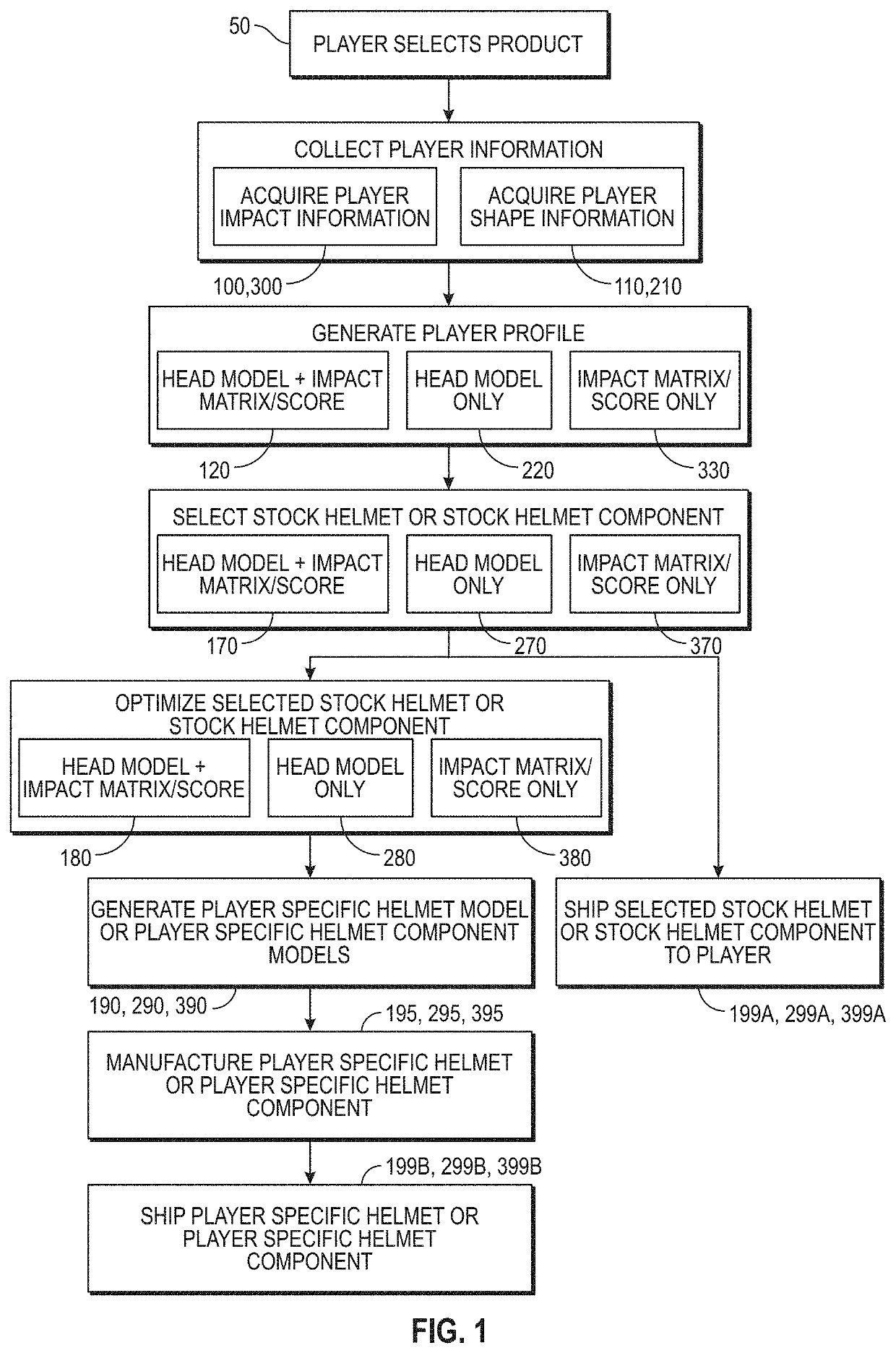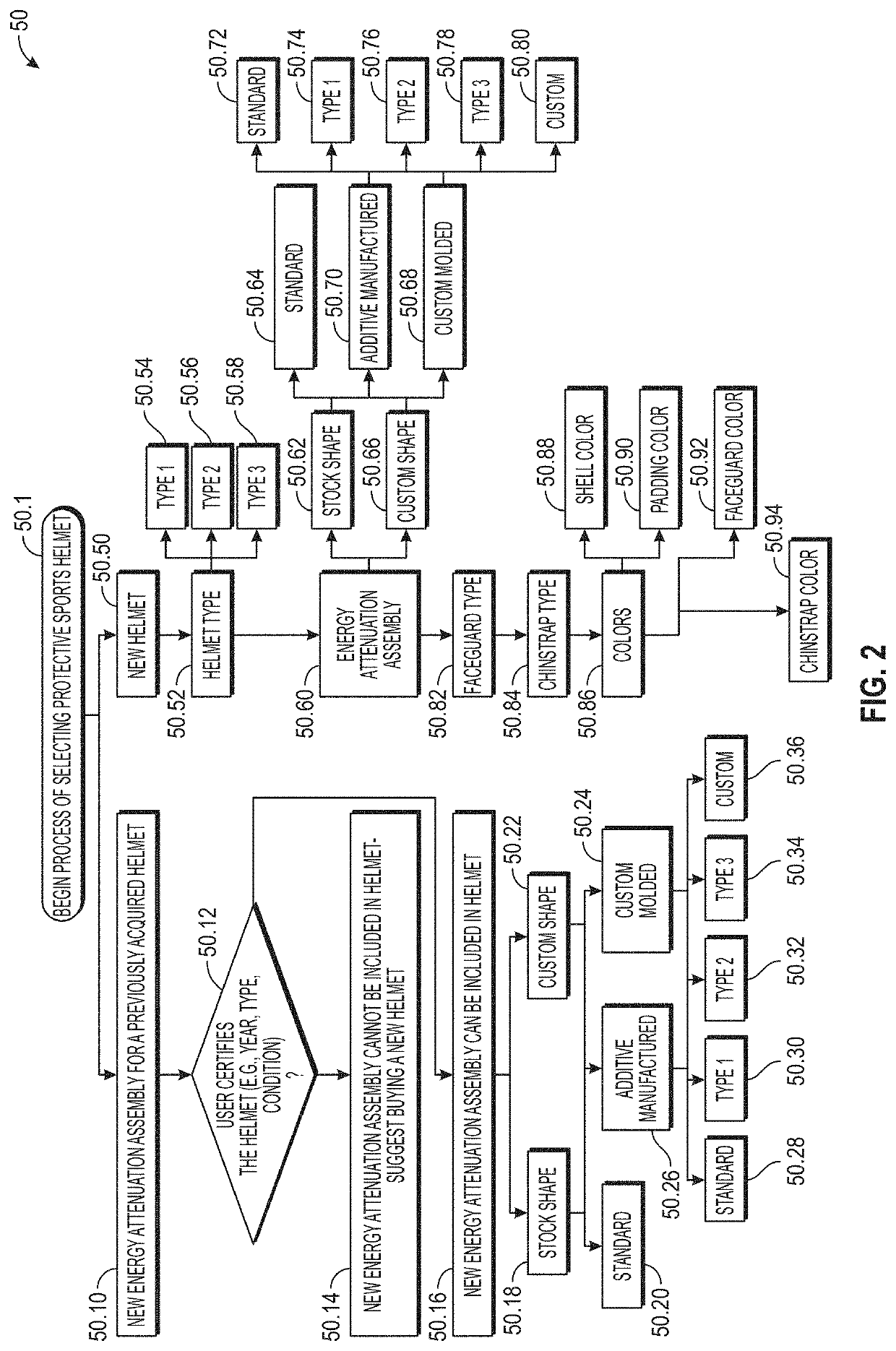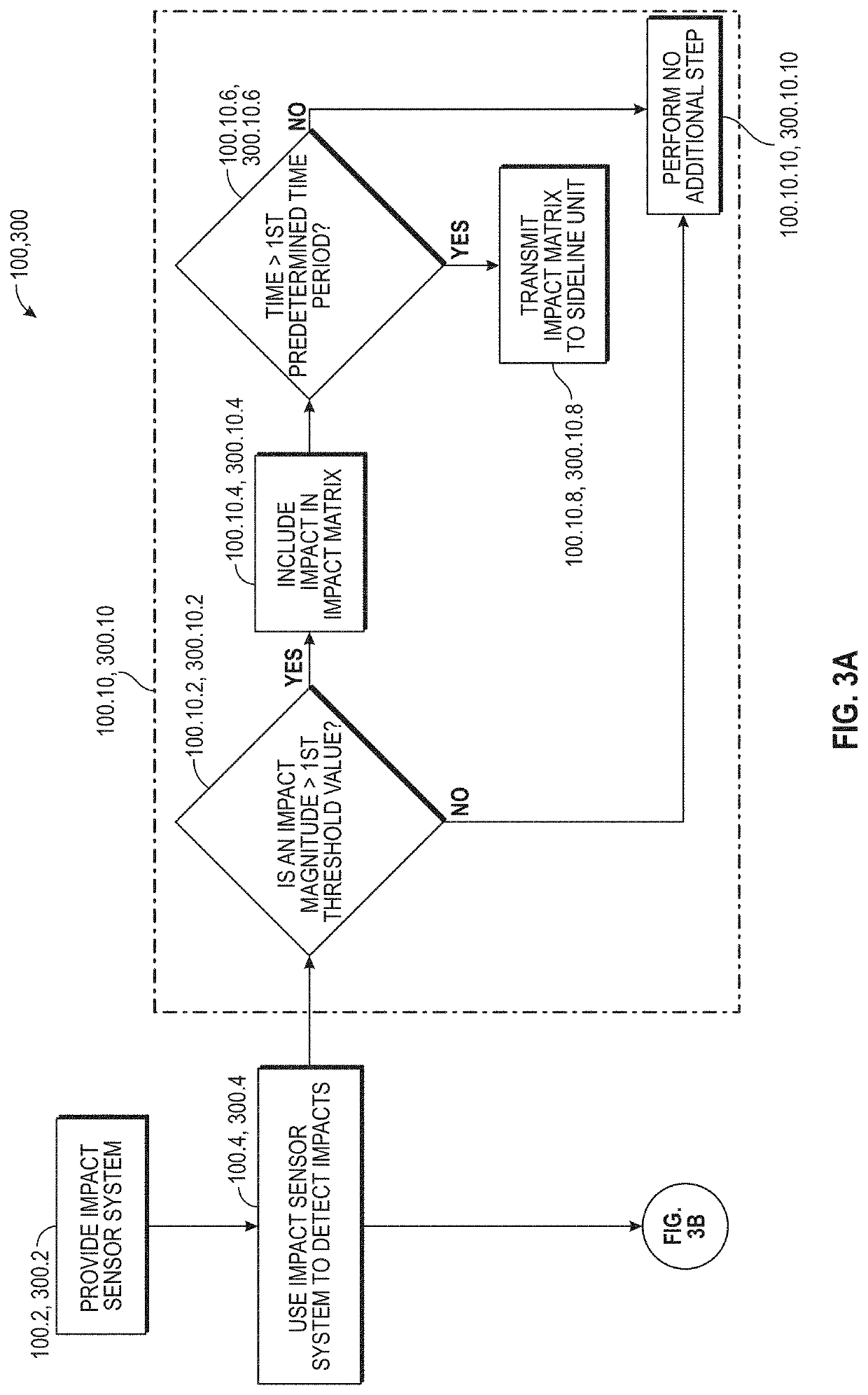Protective recreational sports helmet with components additively manufactured to manage impact forces
a technology for recreational sports and helmets, applied in the field of protective sports helmets, can solve the problems of not using advanced techniques in the creation of helmets, and most traditional helmets do not contain components
- Summary
- Abstract
- Description
- Claims
- Application Information
AI Technical Summary
Benefits of technology
Problems solved by technology
Method used
Image
Examples
first embodiment
[0136]While the IHU 100.2.4, 300.2.4 is performing the HIE algorithm 100.10, 300.10, the IHU 100.2.4, 300.2.4 is also performing the alert algorithm 100.50, 300.50 shown in FIG. 3B. Referring to FIG. 3B, the microcontroller 100.2.4.12, 300.2.4.12 will calculate an impact value in step 100.50.2, 300.50.2. In one embodiment, this is done by first determining the linear acceleration, rotational acceleration, head injury criterion (HIC), and the Gadd severity index (GSI) for the given impact. The algorithms used to calculate these values are described in Crisco J J, et al. An Algorithm for Estimating Acceleration Magnitude and Impact Location Using Multiple Nonorthogonal Single-Axis Accelerometers. J BioMech Eng. 2004; 126(1), Duma S M, et al. Analysis of Real-time Head Accelerations in Collegiate Football Players. Clin J Sport Med. 2005; 15(1):3-8, Brolinson, P. G., et al. Analysis of Linear Head Accelerations from Collegiate Football Impacts. Current Sports Medicine Reports, vol. 5, n...
second embodiment
[0273]Below are a number of exemplary embodiments of the front energy attenuation member model that may be created in step 190.8, 290.8, 390.8. In the first exemplary embodiment, the chemical composition and the structural makeup of the front energy attenuation member 2010, 3010 may be consistent throughout the model. Specifically, the front energy attenuation member model may be comprised of: (i) a consistent blend of two types of polyurethane and (ii) a single lattice cell type. In a second embodiment, the chemical composition of the front energy attenuation member model may be consistent throughout the entire model, while the structural makeup may vary between member regions. Specifically, the model may have: (i) a consistent blend of two types of polyurethane, (ii) a first region, which has a first lattice cell type and a first density, and (iii) second region, which has a first lattice cell type and a second density. In this example, the second lattice density may be greater or...
third embodiment
[0274]In a third embodiment, the chemical composition of the front energy attenuation member model may be consistent throughout the model, while the structural makeup changes in various regions of the model. Specifically, the front energy attenuation member model may have: between (i) 1 and X different lattice cell types, where X is the number of lattice cells contained within the model, (ii) preferably between 1 and 20 different lattice cell types, and (iii) most preferably between 1 and 10 different lattice cell types. Additionally, the front energy attenuation member model may also have: (i) between 1 and X different lattice densities, where X is the number of lattice cells contained within the model, (ii) preferably between 1 and 30 different lattice densities, and (iii) most preferably between 1 and 15 different lattice densities. Further, the front energy attenuation member may also have: (i) between 1 and X different lattice angles, where X is the number of lattice cells cont...
PUM
| Property | Measurement | Unit |
|---|---|---|
| time | aaaaa | aaaaa |
| time | aaaaa | aaaaa |
| time | aaaaa | aaaaa |
Abstract
Description
Claims
Application Information
 Login to View More
Login to View More - R&D
- Intellectual Property
- Life Sciences
- Materials
- Tech Scout
- Unparalleled Data Quality
- Higher Quality Content
- 60% Fewer Hallucinations
Browse by: Latest US Patents, China's latest patents, Technical Efficacy Thesaurus, Application Domain, Technology Topic, Popular Technical Reports.
© 2025 PatSnap. All rights reserved.Legal|Privacy policy|Modern Slavery Act Transparency Statement|Sitemap|About US| Contact US: help@patsnap.com



